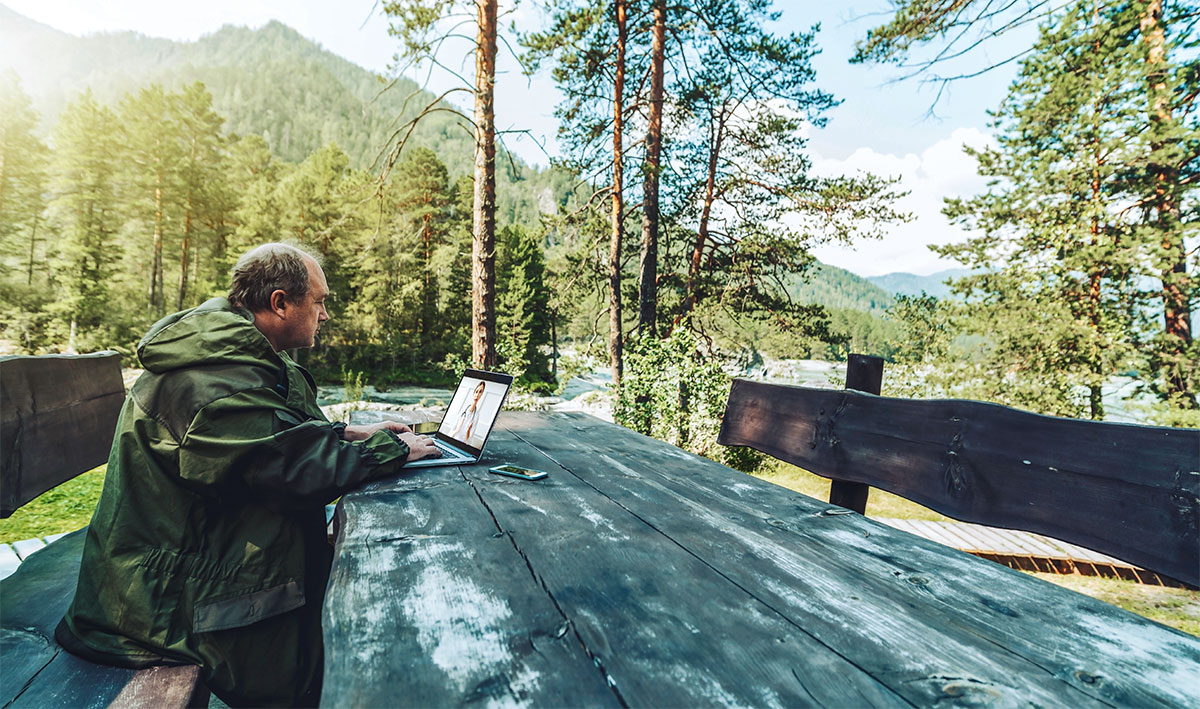Coronavirus, Telehealth & The Generational Divide
The results of the recent Global Rescue survey about telehealth and the current pandemic revealed a few surprises.
For example, respondents 71 and older were 43% less likely to use telehealth than people in their 30s. Perhaps that outcome can be attributed to the digital divide. But the survey exposed another surprise, specifically that the same group were twice as likely to break voluntary quarantine than all younger generational groups.
The survey responses are not an aberration. Older adult conduct (in general) during the pandemic is strikingly at odds with COVID-19 protocols. Reports of people 56 plus going out to bars, socializing at restaurants, going to the office, and hitting yoga class abound. NYC Mayor Bill DeBlasio, two years shy of 60, traveled 12 miles to exercise at his gym on the same day fitness facilities across the city were shutting down.
In a recent piece for The New Yorker, journalist Michael Schulman reported his 74-year-old father and 68-year-old mother recently had a “fun dinner at the Polo Bar, in midtown Manhattan, with another couple who were old friends.” He added that the senior parents of his friends were shopping, meeting for coffee at the mall, going to church, golfing and continuing to work at the office.
These observations match a recent Harris poll showing that 77% of adults older than 65 believe they are “unlikely” to catch the virus. But the opposite is true. The Centers for Disease Control and Prevention (CDC) says older adults (65 plus) are at higher risk for severe illness related to COVID-19, adding that data shows that eight out of 10 coronavirus deaths in the U.S. are among people 65 and older.
 “Whether this senior citizen behavior is founded in a lack of awareness, a form of rebelliousness, or something else – it is at odds with the social distancing, work-from-home, skip non-essential travel protocols government and medical officials have issued to stem the spread of COVID-19,” said Anna Christensen, a wilderness first aid expert, author and Global Rescue TotalCare member. “What is ironic, and perhaps tragic, is that older Americans – the demographic at the greatest statistical risk for death by the virus – are precisely the people who are the least concerned.”
“Whether this senior citizen behavior is founded in a lack of awareness, a form of rebelliousness, or something else – it is at odds with the social distancing, work-from-home, skip non-essential travel protocols government and medical officials have issued to stem the spread of COVID-19,” said Anna Christensen, a wilderness first aid expert, author and Global Rescue TotalCare member. “What is ironic, and perhaps tragic, is that older Americans – the demographic at the greatest statistical risk for death by the virus – are precisely the people who are the least concerned.”
The dangers for this age group elevate when you factor in their general, albeit mistaken, distrust of telehealth. According to the National Poll on Healthy Aging, nearly 7 out of 10 older adults believe the quality of telehealth care would not be as good as a face-to-face doctor visit and nearly half admitted they would have difficulty using the technology.
The reality is very different. Dr. Claudia Zegans, medical director for Elite Medical Group, an organization that provides telehealth services, says physician consultations using video can assess and identify people who are sick enough to need an in-person evaluation or specific testing. “For others, telehealth is an effective way to address whatever their current medical concern is as much as possible without ever leaving their home,” she said.
Dr. Zegans added that in this time of COVID-19 pandemic, telemedicine is incredibly useful to decrease traffic at clinics, emergency departments and urgent care centers. “This result is not only good for individual patients, but also for the entire community.”
Telehealth is vital during a health crisis, for young and old. Coronavirus is highly infectious and could overwhelm hospitals, creating shortages of beds, medicine, medical personnel, respirators and other resources.
“People are seeking out telemedicine services for coronavirus and I think telemedicine has an extraordinary value in this time, where we're all trying to keep people out of health care facilities unless they really need to go,” Zegans said.
With a Global Rescue TotalCareSM membership, members can access board-certified, licensed doctors for real-time video visits, right from home.
“The sooner everyone – no matter their age – taps into telehealth, the better we will manage and recover from the pandemic,” Christensen said.
Safari Club International highly recommends that you enroll with Global Rescue membership prior to your next trip, and consider an upgrade to TotalCare membership which adds telehealth services. Click here for more information or call (617) 459-4200 and mention you’re a Safari Club International member.

